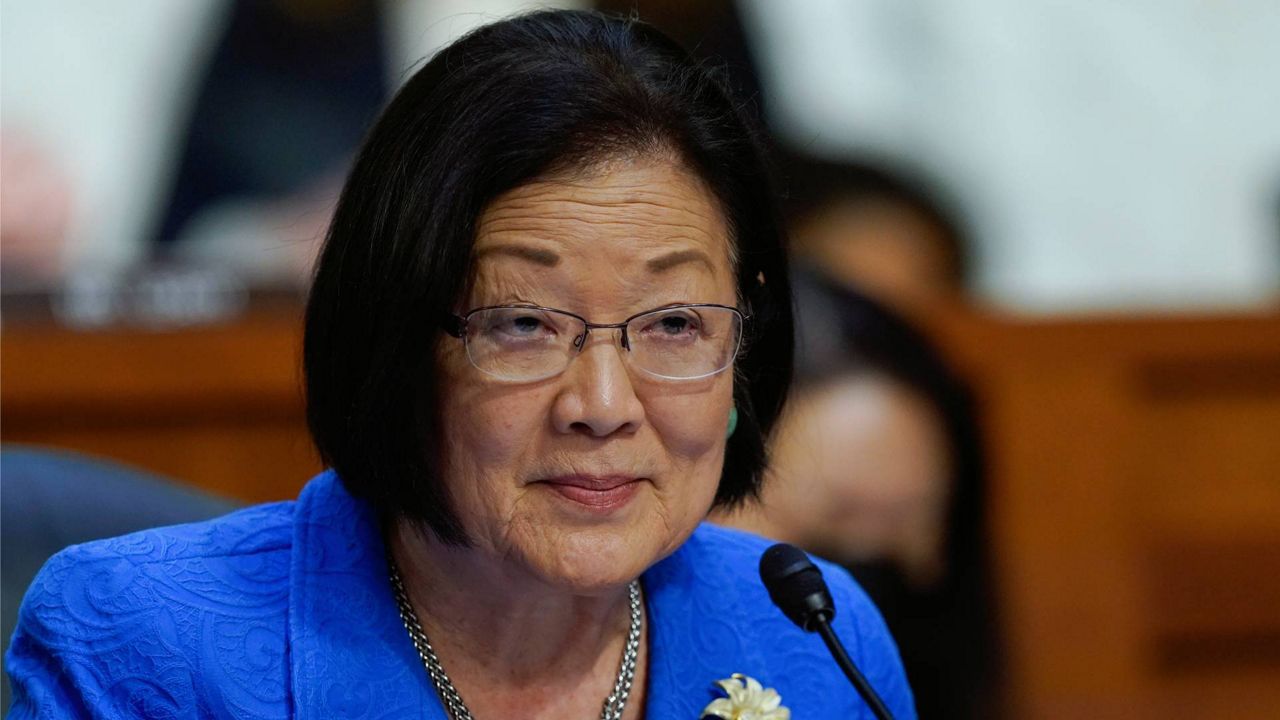WASHINGTON — U.S. Sen. Mazie Hirono, D-Hawaii, introduced an unprecedented measure on Wednesday aimed at putting a halt to so-called “judge shopping” in the federal courts.
The practice of activist groups targeting districts where a single predetermined judge is assigned a case to achieve an expected favorable outcome has been in the spotlight recently thanks to a recent case in which an anti-abortion group allegedly “shopped a case” to Texas district judge Matthew Kacsmaryk in a successful effort to block the availability of the abortion drug mifepristone.
The Stop Judge Shopping Act would give the U.S. District Court for the District of Columbia exclusive jurisdiction over cases that would have national implications.
“When parties are able to choose their judges, it creates the perception that they are able to predetermine their case’s outcome, compromising the integrity of our federal justice system,” Hirono said. “Activist plaintiffs should not be able to hand-pick individual judges to set nationwide policy, which is why it’s critical we address the issue of judge shopping in our federal courts.
“By routing cases with national implications through the D.C. District Court, which has expertise in cases challenging federal agency action, the Stop Judge Shopping Act will strengthen trust in our federal justice system and help ensure major cases are decided based on the law, not the ideological agenda of any one judge,” she said.
Hirono’s office noted that the U.S. District Court for the District of Columbia hears most cases involving challenges to federal agency action, and its judges are considered experts at impartially deciding these cases. Currently, it is the only place where certain immigration and campaign finance challenges, as well as Senate subpoena enforcement cases, can be brought.
There are 94 judicial districts in the U.S., many of which are further broken up into smaller divisions. Federal law allows each district to decide how it wants to divide its caseload and the number of judges between its divisions. While some states require judges to move to different divisions, others — such as Texas — do not.
Judge shopping has proved an effective tactic for activist groups across the political spectrum.
Under the bill, parties would retain the ability to file cases in their own local federal court as long as they are seeking an order that would only cover themselves.
On Thursday, U.S. Senate Majority Leader Chuck Schumer said Congress could intervene if the chief judge of a Texas federal court does not agree “to reform the method of assigning cases to judges" in the district.
Michael Tsai covers local and state politics for Spectrum News Hawaii.








